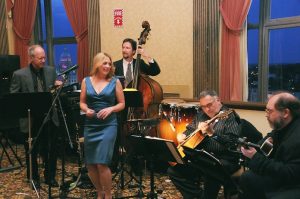
Special events are by definition special. They are not cookie cutter and typically involve unique elements that you may not encounter when planning a meeting or conference. Special events come in all shapes and sizes. From an Olympic torch relay through the streets of Washington, DC, to a trio of strolling strings welcoming guests to a reception at an Embassy. These events require creativity and character. While the purpose and audience may differ for each event, there are some common planning strategies that you might want to consider.
- Form a Planning Committee. Assemble a planning committee and appoint a chairperson. The committee will make initial decisions about the purpose of your special event, the type and theme, the budget, registration or ticketing procedures, sponsorship, entertainment, security, etc. The committee will also determine dates and times, location and other important logistical details in order to improve your chances of maximizing attendance. Once your committee has clearly identified these key considerations, you’re ready to move forward with the planning process.
- Recruit Volunteers. Volunteers is a broad term that may include internal staff, association members, or other stakeholders. Your volunteers will be instrumental in completing tasks for your various subcommittees, such as décor, entertainment, catering, and more. Volunteers should be given clear guidance on what is expected of them by the planning committee chair.
- Solicit Sponsors. Whenever possible, look for ways to partner with sponsors who may be able to support your event with financial or in-kind contributions. Sponsors may also be able to assist with advertising and staffing your event. Developing sponsor levels will allow for everyone, including individuals, small businesses, and corporations to participate.
- Marketing and Communication. Setting clear marketing and communications goals is essential. Identify which platforms you will use to promote your event, such as email, direct mail, social media, radio, etc. Set specific dates in your marketing and communications plan that will allow you to evaluate your financial progress, leaving you time to make adjustment for additional outreach if necessary.
- Collateral Material. Invitation, banners, nametags, programs, giveaways, and more fall under this catch-all category. Branding and messaging should be consistent throughout all mediums. If sponsorship includes the use of a company logo on event signage, for instance, be sure to obtain logos and colors directly from the sponsor; not from their website. You want to use high-resolution, print-ready images that will be clear and legible.
- Event Logistics. Catering, entertainment, transportation, security, and city permits are just a few of the logistics that you may have to coordinate for your event. Each planning subcommittee should develop a timeline of key tasks that address every logistical element of your event. Be sure to have regular check-ins with your committee to ensure everyone is on task. Ultimately, these logistics will be folded together into the run-of-show that will guide you through the actual event.
- Develop a Run of Show and Staffing Plan. As you get closer to the date of your special event and your committees are finalizing their tasks, you should begin drafting your run of show and staffing plan. The run of show will become your onsite implementation plan. As you outline the flow of the event, also consider the staffing necessary to execute your program. For instance, who will visit the site before the event to meet vendors such as caterers and entertainment? Who will greet your VIPs and escort them to appropriate location? When developing your run of show, include start and end times for each phase of your event. Have your committee chairs review the run of show before you go over it with your staff and volunteers. There are many things to consider, so make sure your plan is very comprehensive. Once finalized, make copies for the key players, and always have extras!
- Post Event Evaluation. Plan to hold a post-event evaluation with your committee members. Whether your event is annual or not, it’s important to record the pros and cons so that you can make improvements and avoid pitfalls in the future. Also, consider using a digital survey tool to get feedback from your attendees. Their comments and perspective are often a very valuable reference when planning other events.
- Thank you. Don’t forget to thank your staff, volunteers, and sponsors for their support. No matter how big or small the contribution, it’s important for all of your stakeholders to feel that their time, energy, and money was appreciated.
CMP has been planning exceptional meetings worldwide since 1996!
Need help planning a special event? Please contact us at meetings@cmpinc.net or 703-536-4993.
